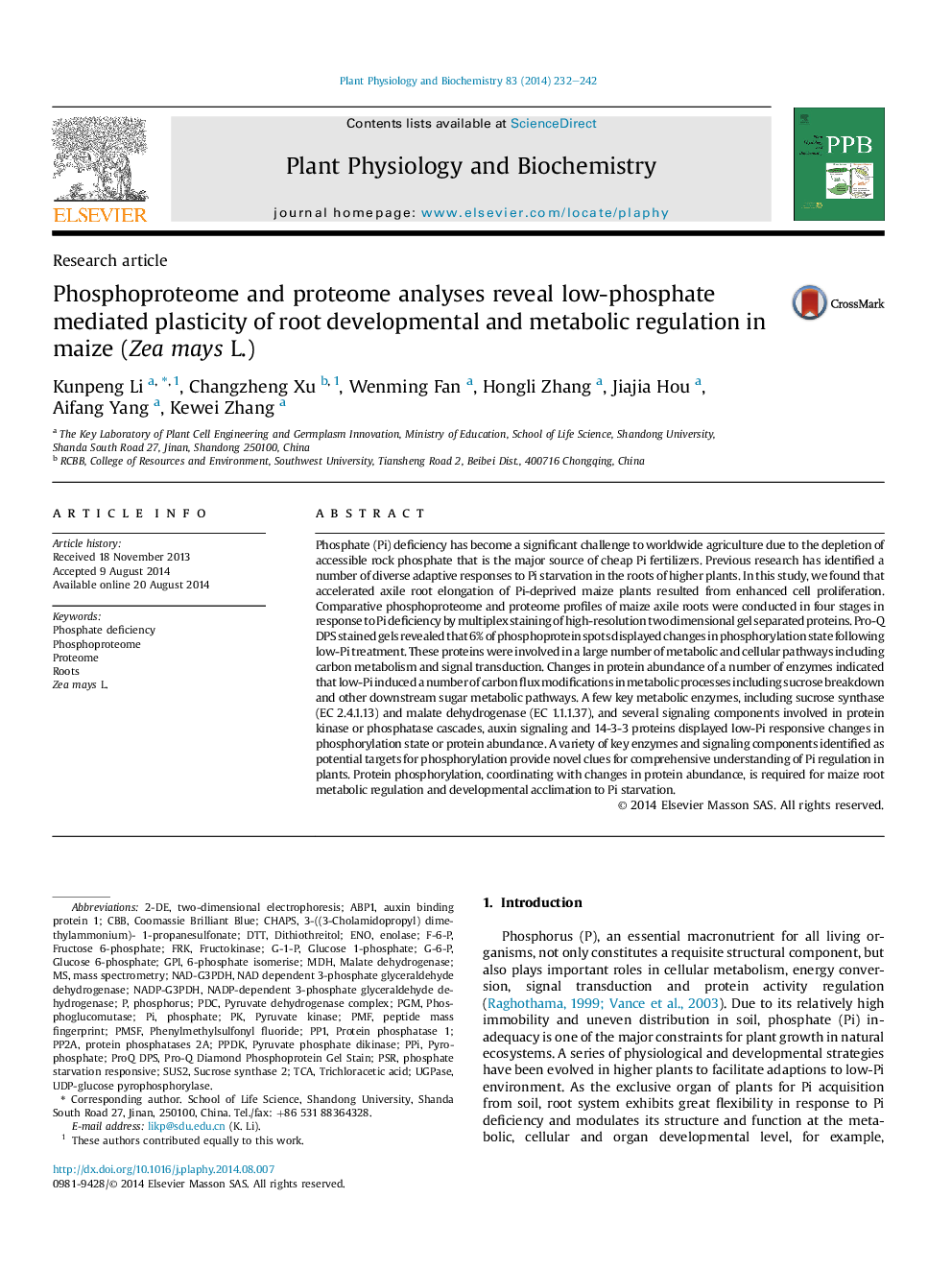| کد مقاله | کد نشریه | سال انتشار | مقاله انگلیسی | نسخه تمام متن |
|---|---|---|---|---|
| 2015776 | 1541938 | 2014 | 11 صفحه PDF | دانلود رایگان |

• Some features of low-Pi induced carbon flux changes were highlighted.
• Low-Pi metabolic regulation is mediated by phosphorylation of some key enzymes.
• Phosphorylation reveals crosstalk between Pi signaling and cellular network.
Phosphate (Pi) deficiency has become a significant challenge to worldwide agriculture due to the depletion of accessible rock phosphate that is the major source of cheap Pi fertilizers. Previous research has identified a number of diverse adaptive responses to Pi starvation in the roots of higher plants. In this study, we found that accelerated axile root elongation of Pi-deprived maize plants resulted from enhanced cell proliferation. Comparative phosphoproteome and proteome profiles of maize axile roots were conducted in four stages in response to Pi deficiency by multiplex staining of high-resolution two dimensional gel separated proteins. Pro-Q DPS stained gels revealed that 6% of phosphoprotein spots displayed changes in phosphorylation state following low-Pi treatment. These proteins were involved in a large number of metabolic and cellular pathways including carbon metabolism and signal transduction. Changes in protein abundance of a number of enzymes indicated that low-Pi induced a number of carbon flux modifications in metabolic processes including sucrose breakdown and other downstream sugar metabolic pathways. A few key metabolic enzymes, including sucrose synthase (EC 2.4.1.13) and malate dehydrogenase (EC 1.1.1.37), and several signaling components involved in protein kinase or phosphatase cascades, auxin signaling and 14-3-3 proteins displayed low-Pi responsive changes in phosphorylation state or protein abundance. A variety of key enzymes and signaling components identified as potential targets for phosphorylation provide novel clues for comprehensive understanding of Pi regulation in plants. Protein phosphorylation, coordinating with changes in protein abundance, is required for maize root metabolic regulation and developmental acclimation to Pi starvation.
Journal: Plant Physiology and Biochemistry - Volume 83, October 2014, Pages 232–242